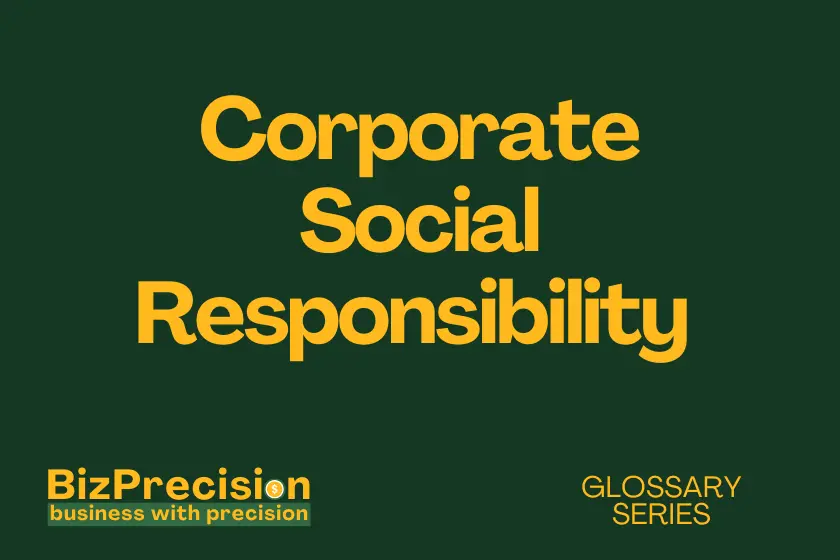What Is Corporate Social Responsibility (CSR)?
Corporate Social Responsibility refers to business practices that create positive social, environmental, and economic impact while maintaining profitability.
CSR has become vital for modern business success. Companies with strong CSR programs see better results. A 2023 Cone Communications study found that 86% of consumers trust companies more when they support social causes.
Today’s businesses must balance profit with purpose. Let’s explore how CSR works and why it matters for your company’s growth.
Understanding Corporate Social Responsibility
The Evolution of CSR
CSR has changed how companies do business. In the 1970s, few companies thought beyond profits. Today, most major firms have CSR programs.
The rise of social media pushed this change forward. Customers now see how companies act. They support brands that match their values. A recent McKinsey study shows that 70% of consumers pay more for sustainable products.
The internet age brought new CSR demands. Companies must now show real action. Empty promises don’t work anymore. Transparency matters more than ever.
Four Pillars of Corporate Social Responsibility
CSR stands on four main pillars. Each one helps companies make positive change.
Environmental Responsibility focuses on green practices. Companies reduce waste and emissions. They use renewable energy and sustainable materials. Tesla’s shift to electric cars shows this pillar in action.
Social Responsibility means supporting communities. Companies help solve local problems. They create jobs and fund programs. Microsoft’s skills training programs serve as a strong example.
Economic Responsibility involves fair business practices. Companies pay fair wages and prices. They invest in local growth. Fair trade coffee companies show this approach well.
Ethical Responsibility guides company behavior. Firms follow moral standards. They treat workers and suppliers well. Patagonia’s worker rights program sets the bar here.
Key Drivers of CSR Implementation
Several factors push companies toward CSR. Consumer demand leads the way. People want responsible products. They check company practices before buying.
Cost savings drive CSR too. Green practices often cut expenses. Solar power reduces energy bills. Waste reduction saves money on materials.
Employee satisfaction matters as well. Workers prefer ethical employers. They stay longer at responsible companies. This cuts hiring costs.
Regulatory pressure keeps growing. Laws now require certain CSR practices. Companies must follow environmental rules. Social impact reporting becomes more common.
Benefits and Implementation of CSR
Business Value of CSR Programs
CSR brings clear business benefits. Sales often rise with good CSR practices. Deloitte reports 73% of firms see revenue growth from sustainability.
Brand value grows through CSR work. Customers trust responsible companies more. They become loyal brand advocates. Word spreads about good practices.
Risk management improves with CSR. Companies avoid legal issues. They spot problems early. This saves money and protects reputation.
Measuring CSR Impact
Companies track CSR success in several ways. Environmental metrics show resource savings. Social metrics reveal community benefits. Financial metrics prove business value.
Key performance indicators matter most. Carbon footprint measures environmental impact. Community engagement rates show social success. Return on investment proves program value.
Regular reporting keeps programs on track. Companies share results openly. They set clear goals. Progress stays visible to all stakeholders.
Creating an Effective CSR Strategy
Good CSR starts with clear goals. Companies must know what they want. They should match CSR to business strengths.
Stakeholder input shapes strategy. Companies listen to customers. They work with employees. Community needs guide programs.
Action plans make goals real. Companies set timelines. They assign resources. Regular reviews keep work on track.
Common Implementation Challenges
Budget limits often slow CSR work. Companies must prove program value. They need to show clear returns.
Employee buy-in takes time. Workers need to understand goals. They should see personal benefits. Training helps build support.
Measuring impact challenges many firms. Some benefits are hard to track. Long-term effects take time to show. Companies need patience.
Best Practices and Future Trends
Successful CSR Examples
Top companies lead in CSR work. Unilever’s sustainable living plan cut waste. It grew sales too. Their success shows CSR’s business value.
Patagonia proves CSR can drive growth. They repair old clothes. They use recycled materials. Customers love their honest approach.
Ben & Jerry’s shows social leadership. They support many causes. They share their success. Their brand grows through good works.
Integration with ESG Standards
ESG standards guide modern CSR. They set clear rules. Companies follow common measures. This helps show real impact.
Reporting follows standard forms. Companies share consistent data. Investors can compare results. Progress becomes clear.
Global standards keep growing. More firms join ESG programs. Rules get clearer. Impact measurement improves.
Future of Corporate Social Responsibility
Technology will change CSR work. AI helps track impact better. Blockchain proves ethical sourcing. Data shows real results.
Climate focus keeps growing. Companies must cut carbon more. They need new solutions. Innovation drives progress.
Social justice gains importance. Companies address inequality. They support diverse communities. Impact grows wider.
Digital Transformation in CSR
Digital tools make CSR easier. Apps track program results. Social media shares impact. Technology speeds change.
Data analytics prove value better. Companies see clear results. They adjust programs faster. Impact grows stronger.
Online platforms spread good news. Success stories travel far. More people join in. Change happens faster.
Conclusion
CSR shapes modern business success. Companies must balance profit and purpose. Good practices bring clear benefits.
Start your CSR journey today. Set clear goals. Listen to stakeholders. Take real action.
Your company’s future depends on responsible practices. Build trust through good works. Grow your business while helping others.







